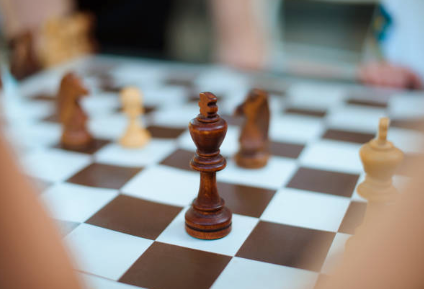
What is Puzzles in Chess?
In chess, puzzles, often referred to as "tactics puzzles" or simply "tactics," are specific positions or scenarios that challenge players to find the best moves or sequences of moves to achieve a particular objective. These puzzles are a crucial aspect of chess training and improvement, and they serve several purposes:
-
Skill Development: Chess puzzles help players improve their tactical skills. Tactics are short-term combinations of moves that can lead to significant advantages, such as winning material (pieces) or checkmating the opponent. Solving puzzles regularly helps players recognize tactical patterns and opportunities in their own games.
-
Pattern Recognition: Puzzles help players develop the ability to quickly recognize common tactical motifs, such as pins, forks, skewers, discovered attacks, and more. This pattern recognition becomes invaluable during real games when players can spot opportunities to exploit their opponents' weaknesses.
-
Calculation Skills: Solving chess puzzles requires players to calculate variations accurately. They must analyze different move sequences to determine the best course of action. This improves a player's ability to calculate and foresee consequences in their games.
-
Visualization: Puzzles often require players to visualize the board and piece movements in their minds. This skill helps in planning and executing combinations during actual games.
-
Endgame Techniques: Some chess puzzles focus on endgame scenarios, helping players improve their endgame knowledge and technique, which is crucial for converting advantages into wins.
Chess puzzles come in various forms, including mate-in-one (finding a checkmate in one move), tactical combinations, defensive puzzles, and endgame positions. Players of all levels, from beginners to grandmasters, use puzzles as a fundamental tool for improving their chess skills and sharpening their tactical acumen.

How to play puzzles in chess?
Playing puzzles in chess, also known as solving chess puzzles or tactics puzzles, is a great way to improve your chess skills, particularly your tactical awareness and calculation abilities. Here's how to play chess puzzles:
-
Access Puzzles:
- You can find chess puzzles in various formats, including chess books, chess websites, chess apps, and chess software.
- Chess websites and apps often have dedicated puzzle sections or tactics trainers that provide puzzles for you to solve.
-
Select a Difficulty Level:
- Puzzles are usually categorized by difficulty, ranging from beginner to advanced.
- If you're new to puzzles, start with easier ones and gradually increase the difficulty as you improve.
-
Analyze the Position:
- Study the chessboard and the pieces carefully. Understand the position, including the placement of your pieces and your opponent's pieces.
- Identify any tactical motifs or potential opportunities. Look for pins, forks, skewers, discovered attacks, and other tactical themes.
-
Set a Goal:
- Determine the objective of the puzzle. It could be to checkmate your opponent, win material, or find the best move to maintain a strong position.
- Some puzzles may require finding a series of moves that lead to the desired outcome.
-
Think Carefully:
- Take your time to analyze the position and calculate potential moves.
- Visualize the board and piece movements in your mind to see how different moves play out.
-
Make Your Move:
- Once you've identified the best move or sequence of moves, make your move on the chessboard or in the puzzle interface.
-
Check Your Solution:
- After making your move, compare it to the puzzle's solution.
- If your move matches the solution, you've successfully solved the puzzle. If not, try again.
-
Learn from Mistakes:
- If you make a mistake or can't find the solution, don't be discouraged. Mistakes are opportunities to learn.
- Review the puzzle, understand where you went wrong, and try to improve your thought process for future puzzles.
-
Repeat and Practice:
- Practice regularly. Solve multiple puzzles each day to reinforce your tactical skills.
- As you progress, challenge yourself with more complex puzzles to continue your improvement.
-
Track Your Progress:
- Many puzzle platforms and apps offer features to track your progress, such as your solving speed and success rate.
- Monitor your improvement over time and set goals to achieve better results.
Playing chess puzzles is an effective way to enhance your chess skills, and consistent practice will help you become a more formidable chess player. Whether you're a beginner or an experienced player, puzzles are a valuable tool for sharpening your tactical awareness and calculation abilities.
Follow Chessnut, Get more tips of chess.


